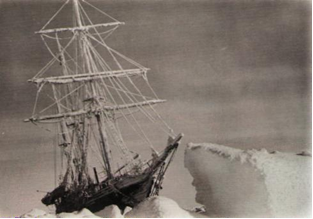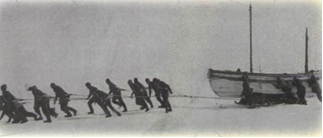Adventures
An adventure is an event or series of events that happens outside the course of the protagonist's ordinary life, usually accompanied by danger, often by physical action. Adventure stories almost always move quickly, and the pace of the plot is at least as important as characterization, setting and other elements of a creative work. Adventure has been a common theme since the earliest days of written fiction. Indeed, the standard plot of Medieval romances was a series of adventures. Following a plot framework as old as Heliodorus, and so durable as to be still alive in Hollywood movies, a hero would undergo a first set of adventures before he met his lady. A separation would follow, with a second set of adventures leading to a final reunion.
seen many changes over the years - from being constrained to stories of knights in armor to stories of high-tech espionages.
Exercise 2 Answer the questions: 1 Have you ever had any adventure story? 2 When did it happen? 3 How did you survive from that situation?
Exercise 3 Read and practice saying the rhyme “A Rocky River” by Linda Marshall. A rocky river bank,
little ones wading, swimming underwater, collecting rocks, making memories, dreaming dreams, skipping rocks, floating downriver, living life outloud, an adventure in their hearts and minds forever!
Exercise 4 a) Listen to the interview with Russell about his adventures [8.10; 1], [Part 3, p.163].
b) You are going to listen to Russell talking about an ‘experience present’ [8.11; 1]. Look at the photo. What was the present? Do you think he enjoyed it?
Exercise 5 Listen to the phrases. Match them with the pictures: 1 We learned how to land. 2 I sat on the floor and waited. 3 Then the instructor said ‘Jump!’ and I jumped. 4 Suddenly the parachute opened, and I floated down. 5 One of the people in my group broke his leg.
Exercise 6 Listen to the interview with Russell. Did he enjoy the jump? Would he like to do it again? Why (not)?
Exercise 7 Discuss the text “Amazing Escape” in the group and ask questions.
and, in August 1914, he left England. His crew of 28 men sailed on the ship the Endurance to the South Atlantic. Ocean and then towards Antarctica. Almost one day’s journey from their destination the ship stopped because of the thick ice. So, the crew had to wait on the ship for the ice to melt. But as the ice melted, the ship started to break. The crew left the ship and camped on the frozen ocean. Eventually the Endurance sank. After months of living on the broken ice, the men could sail to land in their lifeboats.
He and five other men survived storms and waves of 16 metres in one lifeboat. On landing, shackleton and two men had to climb for 36 hours to find help. It took a further three months to rescue Shackleton’s men from Elephant Island, but amazingly all 22 men survived. Exercise 8 What kind of other adventure stories do you know? Tell to your partner and discuss it.
|

 D'Ammassa argues that adventure stories make the element of danger the focus; hence he argues that Charles Dickens' novel A Tale of Two Cities is an adventure novel because the protagonists are in constant danger of being imprisoned or killed, whereas Dickens' Great Expectations is not because "Pip's encounterwith the convict is an adventure, but that scene is only a device to advance the main plot, which is not truly an adventure.
D'Ammassa argues that adventure stories make the element of danger the focus; hence he argues that Charles Dickens' novel A Tale of Two Cities is an adventure novel because the protagonists are in constant danger of being imprisoned or killed, whereas Dickens' Great Expectations is not because "Pip's encounterwith the convict is an adventure, but that scene is only a device to advance the main plot, which is not truly an adventure. Variations kept the genre alive. From the mid-19th century onwards, when mass literacy grew, adventure became a popular subgenre of fiction. Although not exploited to its fullest, adventure has
Variations kept the genre alive. From the mid-19th century onwards, when mass literacy grew, adventure became a popular subgenre of fiction. Although not exploited to its fullest, adventure has
 rippling rapids,
rippling rapids,







 Ernest Shackleton was a famous explorer. He wanted to explore Antarctica
Ernest Shackleton was a famous explorer. He wanted to explore Antarctica They landed on Elephant Island in April 1915. Shackleton decided to find help. He made one of the most dangerous journeys ever, when he tried to return to the island of South Georgia.
They landed on Elephant Island in April 1915. Shackleton decided to find help. He made one of the most dangerous journeys ever, when he tried to return to the island of South Georgia.


